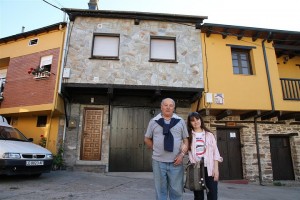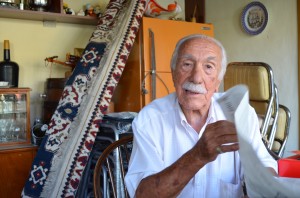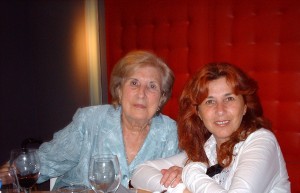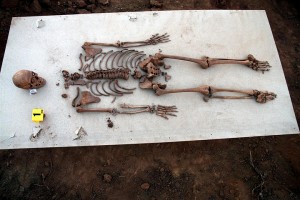SPECIAL REPORT Argentine judge continues fight for victims of Franco
Editor’s note: This piece has been written exclusively for the Volunteer.
After more than seven decades of impunity, those who committed crimes during Francisco Franco’s dictatorship may finally have to face a judge. Spain has never lifted its 1977 amnesty law, which, unlike similar laws in Chile and Argentina, was passed by a democratically elected government. Claiming that the law was a crucial piece of the country’s peaceful transition to democracy, Spain continues to refuse to investigate its past.
The Argentine judge María Servini de Cubría has shown no such qualms. She’s overseeing a trial looking into the imprisonments, tortures, murders, and disappearances that took place during the Spanish Civil War and resulting dictatorship. Argentine resident Darío Rivas opened the case by making recourse to international law, under which crimes against humanity have no statute of limitations and no jurisdictional boundaries. The trial now includes 120 individual plaintiffs and 62 human rights organizations.
“Héroes que resistieron a un bárbaro”
Darío Rivas may be ninety-three years old, but he’s still a force to be reckoned with. For decades, he’s been fighting for justice for his father, who was murdered by Francisco Franco’s regime.
Rivas was born in Galicia, but his father sent him to Argentina at the age of nine to be with his uncles. His send-off from Spain was the last time he saw his father: Seven years later, in 1936, Falangists killed Severino Rivas, the democratically-elected mayor of the Galician town Castro de Rei.
Severino Rivas was in a café when Falangists kidnapped him and turned him in to Franco’s troops. They accused him of being a traitor to the fatherland and of bearing arms.
“Those who overthrew the government were the true traitors,” says Darío Rivas. “My father had been chosen by the people.”
So many people demanded Severino Rivas’ release that the authorities finally gave in. But, that night, he disappeared and was later found dead.
Ever since, Darío Rivas has sought justice for his father. And, though it’s been an uphill battle, he’s come a long way. In 2008, Severino Rivas was cleared of all charges, and the town of Castro de Rei named a street after him and held a public tribute in his memory.
¿Qué actos había hecho mi padre? Mi padre—ya fue costumbre de mi casa—ayudaba mucho a la gente pobre. Mi padre hasta daba tierra a la gente y le daba semillas para que sembraran para que tuvieran algo que comer. Entonces decidieron ponerle el nombre a una calle, hacerle un homenaje.
When Rivas traveled to Spain for this tribute, the townspeople helped him find his father’s grave. And, despite one priest’s initial resistance, he successfully buried the four bones he found there in a church cemetery.
The last step that Rivas wants to take is to bring to justice those responsible for his father’s death.
On April 14, 2010—the 79th anniversary of the proclamation of Spain’s Second Republic—Rivas decided to press charges against his father’s murderers in an Argentine court. By doing so, he opened a doorway to justice not only for himself, but also for hundreds of others who suffered or whose relatives suffered under the Franco regime, many of whom have now added themselves to the case.
Rivas says it doesn’t matter if his father’s murderers are dead. “I want the government to tell us how many people are buried in the mass graves and what their names were. I want them to open up the graves and return the people’s remains to their families. And I want the people to be remembered, not as victims of a civil war, but as heroes,” he explains. “They died defending a democratically elected government. They were heroes who resisted a barbarian.”
“Nos cierran unas puertas, pero nosotros abrimos otras puertas”
Mi madre, siempre, desde que yo era muy pequeña, su obsesión—yo entonces no me daba cuenta, porque era pequeña—era contarme quién era mi abuelo. Ella me contaba, y me decía, “Acuérdate que se llamaba Andrés París Martorell. Acuérdate que era un buen hombre; que no había hecho daño a nadie; que no le gustaban las armas; que nunca, nunca cogió un arma en la mano; que lo mataron en la guerra aunque aquí no hubo guerra.”
Maria Antònia Oliver París is the president of Mallorca’s Association of Historical Memory and the granddaughter of a man who disappeared in 1937. Andrés París Martorell was imprisoned and later assassinated by the Falangists who controlled Mallorca from the very beginning of the Spanish Civil War.
Since she was a young child, Oliver sought to learn more about her grandfather’s death by talking to her neighbors, and, in 2000, she started working through human rights organizations to find his remains. She’s talked to politicians, pressed charges in Spanish courts, and demanded that the mass graves of Mallorca be opened.
“What I want is for my mother to know truth, justice, and reparation, before she dies,” Oliver explains.
But everywhere she’s gone, Oliver has been turned away empty-handed.
“It’s really hard when the institutions that are your institutions, that are the institutions of your democracy, answer you in such an aggressive way, denying you your rights,” she says. “It’s extremely painful.”
Unlike in Argentina, Spain’s amnesty law is still in full force. Oliver says that’s because the Spanish dictatorship had four decades—almost two generations—to repress and silence the Spanish people.
Oliver was seventeen years old when Franco died—young enough, she says, to recover from the fear of a forty-year dictatorship. She adds that the grandchildren of those murdered and disappeared have another advantage: “We are strong; we are young; and we have time.”
“They close some doors to us,” she says, “but we open others.”
“Mi papá ni sabía que a su padre lo había matado el régimen franquista”
Another grandchild of a disappeared person who’s added herself as a plaintiff to the Argentine case is Adriana Fernández, who was born and raised in Argentina.
Though Fernández’s grandfather died in 1936 at the hands of Franco’s troops, her father always thought he had died in an ordinary crime. It was Fernández herself who began to question why her grandfather was buried in a mass grave and not a cemetery.
Esa es una frase que a mi papá le quedó grabada, porque le decían, “Ahí donde el pasto crece más alto, ahí está enterrado tu padre.”
As an instructor of Catholic teachings, Fernández became interested in the disappearances of the priests who had worked in Buenos Aires’ shantytowns in the years before the Argentine dictatorship. While studying the dictatorship in her own home country, she learned about the crimes committed across the Atlantic, under Francisco Franco.
“I began to ask questions then,” Fernández recalls. Why was her grandfather buried in a mass grave? Why was the date of his death symbolic and not the actual day that he died? What were the circumstances that led to his death?
In 2010, Fernández learned that her grandfather had died trying to save his town’s Republican mayor. Falangists told him to bring the mayor to them, but, instead of following those orders, he warned the mayor to flee. For that act of defiance, he was killed.
After a year of gathering documentation, she joined the Argentine case as a plaintiff. She’s the first Argentine grandchild to do so, but she hopes she won’t be the last.
“I want more to join,” she says. “There must be many grandchildren of Spanish victims of repression here, and they should join. We need to ask for justice for our grandparents.”
“No basta una comisión de verdad”
“This is a criminal trial,” says Ana Messuti, one of the eight lawyers who form the team asking for justice for the victims of Spanish repression and their families. Though Argentine, Messuti lives in Spain, as does the lawyer Carlos Slepoy. The other six lawyers on the case reside in Buenos Aires. “This is not a truth commission. We aim to punish those responsible for these crimes.”
Messuti says that, for two years, the case had only ten plaintiffs.
But then, in February 2012, the Spanish Supreme Court disbarred the famous human rights judge Baltasar Garzón for abusing his power: Allegedly, he wiretapped conversations between defendants and defense lawyers in a corruption case involving members of the ruling People’s Party.

Adriana Fernández and her father when they went to Spain for the exhumation of Adriana's grandfather. (Photo courtesy Ms. Fernández.)
Several days later, the court acquitted Garzón of a second charge—that he had also overstepped his powers by investigating human rights abuses committed under the Spanish dictatorship. In 2008, Garzón had investigated those abuses and ordered the exhumation of 19 unmarked mass graves. Later that year, he dropped the case when prosecutors questioned his jurisdiction.
But, though the Court acquitted Baltasar Garzón of wrongdoing in the human rights investigation, it simultaneously issued an impassioned defense of the 1977 amnesty law. By doing so, lawyer Ana Messuti says, the court discouraged any Spanish judge from investigating the dictatorship’s crimes.
“Garzón was acquitted, but Franco’s victims were condemned,” she says.
With the Spanish courts closed to them, Messuti says, victims turned to the Argentine case, and new plaintiffs started joining almost daily.
At the moment, the climate in Argentina is favorable to the successful prosecution of human rights trials. In 2003, the country’s amnesty and due obedience laws were not only repealed but also annulled, and, since then, 210 participants in Argentina’s own military dictatorship have been put behind bars. Furthermore, Argentina has a history of respecting international human rights legislation and international jurisprudence in human rights cases.
“Many say that Argentina is returning the favor that Spain did for us in the Scilingo case,” Messuti says, referring to ex-naval captain Adolfo Scilingo, who was successfully prosecuted by the Spanish judge Baltasar Garzón in 2005.
Despite the favorable conditions in Argentina, Messuti and the other lawyers in the case have had their share of frustrations. The Argentine judge overseeing the case, María Servini, planned to go to Spain in September to take victims’ testimony, but the Argentine courts didn’t grant her the resources—the number of secretaries and working days—she needed, so she decided not to go.
It’s easy to get frustrated in moments like these or by the slow pace of the trial, says Messuti, but she urges optimism: “‘It’s been three years and nothing’s happened,’ people say. ‘It’s been three years and the case is still open,’ I reply.”
In March, Judge Servini will start taking testimony by videoconference.
“It’s important that we don’t fail,” Messuti says. “We can’t let down the victims one more time.”
Eilís O’Neill is a freelance journalist currently based in Buenos Aires, Argentina. She works in print and radio and covers many topics, with a particular focus on social issues and gender.

















